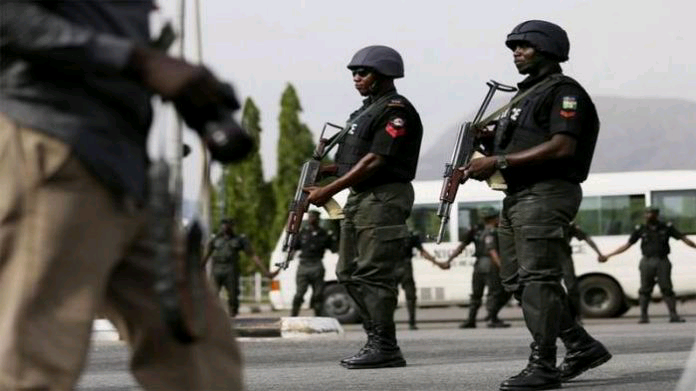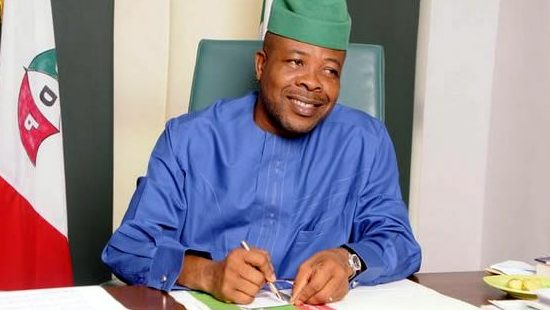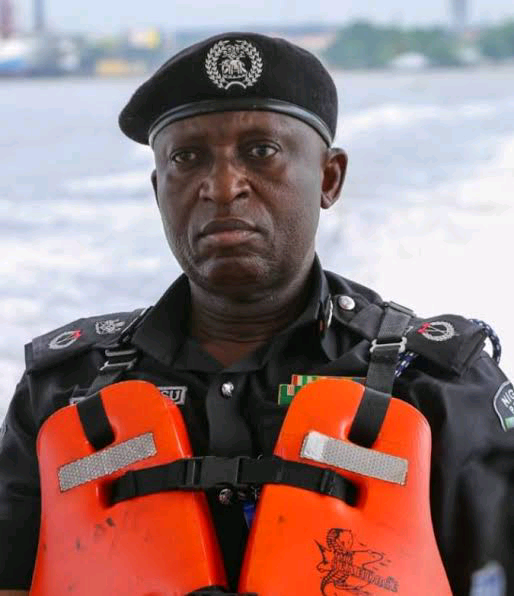Family members of Richard Russell say they are “stunned and heartbroken” after the airline worker stole a passenger plane Friday from the Seattle-Tacoma International Airport and was killed when he crashed 25 miles away.
“This is a complete shock to us,” the family said in a statement they released Saturday night. “We are devastated by these events, and Jesus is truly the only one holding this family together right now.”
The statement said Russell, 29, was “a faithful husband, a loving son and a good friend.”
Referring to audio recordings of Russell talking to air traffic control during his hour-long flight, the statement said his “intent was not to harm anyone. He was right in saying that there are so many people who have loved him.”
Russell, a Horizon Air ground service agent for three and a half years, was the only person aboard the plane, the Pierce County Sheriff’s Department said.
The job of a ground service agent includes directing aircraft for takeoff and gate approach, handling baggage and tidying and de-icing planes, authorities said.
The incident, which the FBI’s Seattle office did not consider terrorism, raises questions about airport security.
Investigators headed Saturday to the crash site to recover the plane’s data recorders and Russell’s remains as part of a criminal probe, authorities said.
The 76-seat Horizon Air turboprop plane took off without authorisation at 7:32 p.m. local time Friday, with Russell, who was not a pilot, at the controls, officials said.
After Russell talked periodically with air traffic controllers for about an hour, the plane crashed at Ketron Island, officials said.
Video from a witness on the ground shows the plane at one point pulling up for a loop, putting the aircraft upside-down and then pulling back up just feet above a body of water.
Airports nationwide will now look at whether their security procedures need to change, CNN safety analyst David Soucie said.
For one, Russell shouldn’t have been able to board the plane alone, he said.
“There is a protocol to not allow anyone singularly to get onboard an aircraft,” Soucie said. “If you’re going to access the aircraft … you make sure that you check with someone else, and that someone else (will confirm) that … you have the right authority to get onto that aircraft.”
Airline and Seattle airport officials revealed the following at a news conference Saturday:
— Russell was credentialed to be in secure areas at the airport, said Brad Tilden, CEO of Alaska Air Group, which owns Horizon Air.
— He passed a series of background checks to gain his position, as he didn’t have any criminal convictions.
— Airline officials believe he was in uniform and worked a shift Friday, Tilden said.
— The plane had been parked in a maintenance area and was not scheduled for a passenger flight, Tilden said.
— He had no purpose to be at that plane Friday evening “other than … what he did do,” Tilden said.
— Besides his other duties, he was qualified to tow aircraft, said Gary Beck, Horizon Air’s president and chief executive officer.
— Officials don’t believe Russell had a pilot’s license, and they don’t know how he knew to fly the plane.
In audio recordings of the incident posted on Broadcastify, Russell can be heard talking to air traffic controllers as they try to guide him to land the plane.
At one point, he apologises and says he is a “broken guy” with “a few screws loose.”
……………………………………………………………………..
Spain, Germany leaders pledge to work together on migration

German Chancellor Angela Merkel has told European Union countries to tackle racist attitudes within the bloc, and said that no member state can avoid the “challenge” migration poses.
She made the comments on Saturday after being welcomed in Spain by Prime Minister Pedro Sanchez, in a visit taking place as a migrant-exchange deal between the two countries came into effect.
After their meeting, held in the Donana natural reserve in the southern region of Andalusia, the two leaders promoted a shared approach to immigration into the bloc amid increasing populist opposition in some countries to taking in more people seeking asylum.
They also said they will share a common vision at an EU summit in Austria next month.
“We are just a few kilometres from the African coast, similar to Malta or Sicily, so this is a challenge we must cope with together and no country can dodge this task,” Merkel said at a press conference, renewing calls for a “fair distribution” of refugees and migrants across the bloc.
“The racist tendencies we are seeing, regrettably, in all member countries is something we have to fight against.”
Spain, this year, has become the main destination for refugees and migrants trying to reach Europe from Africa, amid a crackdown by Libyan authorities and a more hardline approach to immigration in Italy since the inauguration of its new government.
Last week, the UN’s refugee agency, UNHCR, said 23,500 people had arrived in Spain by sea, compared to about 18,500 in Italy and 16,000 in Greece.
“Fourteen kilometres separate the coast of Spain – and therefore Europe – from those of North Africa but there is an infinitely greater distance in terms of development,” Sanchez told reporters.
“Reducing the depth of this abyss of inequality must be one of the main tasks of the European Union.”
Merkel and Sanchez have agreed to push for greater help from the EU for countries such as Morocco, one of the main points of departure for people wanting to reach Europe.
Sanchez said the two leaders were in discussion with the European Commission to unlock aid that would allow Morocco to be more effective in controlling their borders.
“We have to intensify our support for Morocco and Tunisia,” Merkel said. “They are border countries and they need our help.”
The two leaders met on the same day that a bilateral deal on immigration between the countries came into effect.
Under the deal, Madrid agreed to take back migrants arriving in Germany after registering in Spain.
Spain is the first EU country to sign such an agreement, while Merkel is seeking similar arrangements with Greece and Italy after recently coming under severe pressure from her interior minister Horst Seehofer.
In June, a dispute over immigration between Seehofer and Merkel nearly brought an end to the chancellor’s 13-year-long rule.
…………………………………………………………………………
Romania protests: Thousands hold fresh rallies after clashes

Thousands of Romanians are again taking part in an anti-government rally in the capital Bucharest, a day after clashes left more than 400 people injured.
So far, the protest near the government offices has been noisy but peaceful.
Similar demonstrations are also reported in other cities including Cluj, Sibiu, Timisoara and Iasi.
On Friday, more than 50,000 people took to the streets against what they described as entrenched corruption and low wages.
Many of the demonstrators are Romanian expats who have returned from across Europe to voice their anger at the government.
Several police officers were hurt on Friday as some protesters threw bottles and police used tear gas and water cannon.
President Klaus Iohannis said the police reaction was “disproportionate.”
“I firmly condemn riot police’s brutal intervention, strongly disproportionate to the actions of the majority of people,” he said.
The demonstration was staged in front of the government headquarters in the city centre.
The protesters were demanding the resignation of the government, objecting to the perceived efforts to weaken the judiciary by the governing Social Democrats (PSD).
The violence began when some in the crowd tried to break into the government building – but were held back by the police security cordon.
Other protesters were seen throwing paving slabs at the police, who responded with tear gas, pepper spray and water cannon.
Police said they had acted in a proportionate way, responding to the violent behaviour of hooligans in the crowd.
Ileana Anghel travelled all the way from her home in Spain with her husband to take part in the demonstration.
“We want to see modern roads and schools and above all to not have to pay bribes to the left and right,” she told AFP.
Vlad, 60, flew back to Romania from New York, his home of 30 years.
“Corruption and embezzlement, which profit the ruling class, are what bothers me,” Vlad told the same news agency.
According to the World Bank, up to a quarter of the Romanian population – between three and five million people – live and work abroad, sending back around $5bn (£3.9bn) to one of the EU’s least developed countries.
In July, President Iohannis approved the dismissal of anti-corruption prosecutor Laura Codruta Kovesi, who had been leading corruption investigations into local and national politicians.
Mr. Iohannis had been under extensive pressure from the PSD government to agree to her removal.
Around 150,000 gathered in Bucharest last year after the government passed a decree that could free those jailed on corruption charges.











